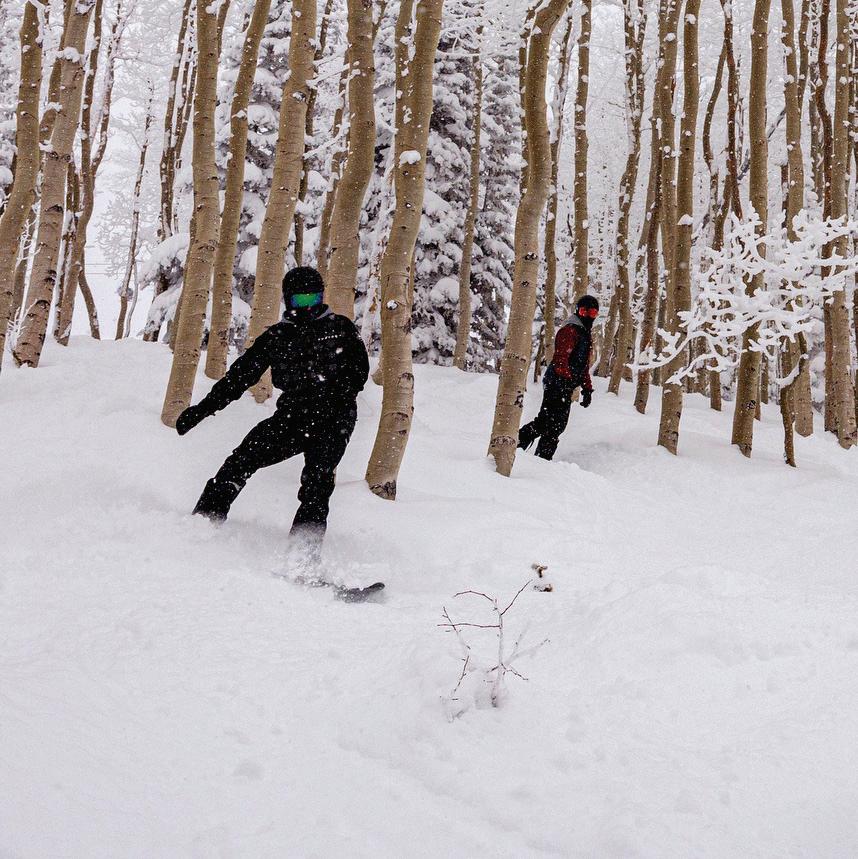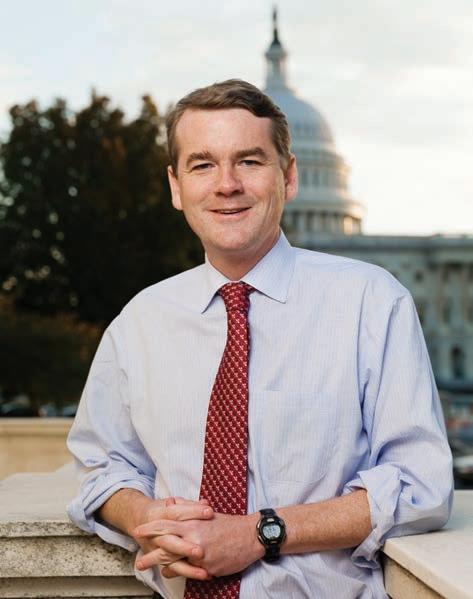
3 minute read
Bennet raises concerns about what chatbots say to kids
Senator from Colorado points to examples
BY KAITLIN KIM COLORADO PUBLIC RADIO
Generative Artificial Intelligence, like Chat GPT, may be able to write an episode of South Park or ace the LSAT, but Colorado U.S. Sen. Michael Bennet is concerned about what these chatbots might be saying to kids.
This comes after journalists and others, posing as kids and young teens, reported that generative AI programs helped provide information to questions that should have raised red flags.
The examples listed in Bennet’s letter include AI giving tips on how to protect access to social media apps parents wanted kids to delete, how to cover up bruises before a visit from Child Protective Services and advice on setting the mood with “candles or music” for someone who posed as a 13-year-old girl preparing to meet a 31-year-old man.
“Although generative AI has enormous potential, the race to integrate it into everyday applications cannot come at the expense of younger users’ safety and well being,” Bennet writes to the heads of Open AI, Snap, Alphabet, Microsoft and Meta. “Although AI-powered chatbots come with risks for anyone – for example, by providing false information, perpetuating bias, or manipulating users – children and adolescents are especially vulnerable. Younger users are at an earlier stage of cognitive, emotional, and intellectual development, making them more impressionable, impulsive, and less equipped to distinguish fact from fiction.”
Bennet had several questions for the tech leaders as they move to integrate generative AI into their apps, including what existing or planned safety features they will implement for younger users, whether they have assessed or planned to assess potential harms to younger audiences, and what kind of auditing processes they have for the AI models behind where exactly Nebraska can nd the water to ll the canal. chatbots that talk to the public.
This push comes as more lawmakers have expressed concerns about how social media is affecting teens’ mental health and how social media companies use the data they are collecting. Answers to Bennet’s questions could help shape any congressional response, either legislation or future hearings, to these concerns.
Bennet is one of several lawmakers from both sides of the aisle who have expressed concerns about the popular social media app TikTok, in particular. The CEO of TikTok will testify in front of the house Energy and Commerce committee later this week.
In the last Congress, Bennet also introduced a bill to set up a federal commission to provide oversight of digital platforms “to protect consumers, promote competition, and defend the public interest.” letter, Schneekloth is not expecting surrender. four years, said Joel Schneekloth, a regional water resource specialist at Colorado State University. But the likely litigation over EPA environmental impact rules alone could drag on for years, Schneekloth added.

This story is from CPR News, a nonprofit news source. Used by permission. For more, and to support Colorado Public Radio, visit cpr. org.
Nonpro ts and water agencies along both the North and South extensions of the Platte River, and the mainstem after they meet 90 miles east of Julesburg, have fought for decades over providing enough water and habitat for whooping cranes. Northern Water in Colorado started planning the two-reservoir Northern Integrated Supply Project in the early 2000s, and only in late 2022 received its nal federal permit, Schneekloth said. at project faces still more opposition lawsuits.
South Platte River environmental issues will “come into play, and that’s going to be an issue that will be adjudicated,” he said.
In prepared remarks at a January water congress, Colorado Attorney General Phil Weiser listed many reasons why the Nebraska canal is “Stated simply . . . both unwise and unlikely.”
Schneekloth, as well as water experts on the Nebraska side of the border, agree with the Colorado engineer’s pointed questions about
With low o -season ow and all the senior water rights diversions allowed above the Nebraska canal spot, Schneekloth said, “we’re starting out with basically a dry river at that point.”
While the Nebraska legislature moves forward, they’re hearing from local academics who are similarly skeptical.
“ ere are a lot of senior users in the basin who would basically be able to take the water, so I’m not even sure legally if this canal would really be able to appropriate water out of the South Platte,” an appropriations committee heard in 2022 from Anthony Schutz, a University of Nebraska associate law professor, according to Nebraska public radio.
Nebraska o cials said in their response email to e Colorado Sun that they have “discussed alternatives” to the canal with Colorado that would allow their state to divert South Platte water in a di erent location that would reduce any impact to Colorado landowners.
“ at alternative was dismissed by Colorado, as they indicated they would not recognize Nebraska
Compact rights unless the diversion is located” southwest of Julesburg and the tiny hamlet of Ovid.

As for Nebraska shrinking from the implications of the Colorado engineer’s hydrology-questioning is story is from e Colorado Sun, a journalist-owned news outlet based in Denver and covering the state. For more, and to support e Colorado Sun, visit coloradosun. com. e Colorado Sun is a partner in the Colorado News Conservancy, owner of Colorado Community Media.
“ ey’re dead serious about this,” he said.










